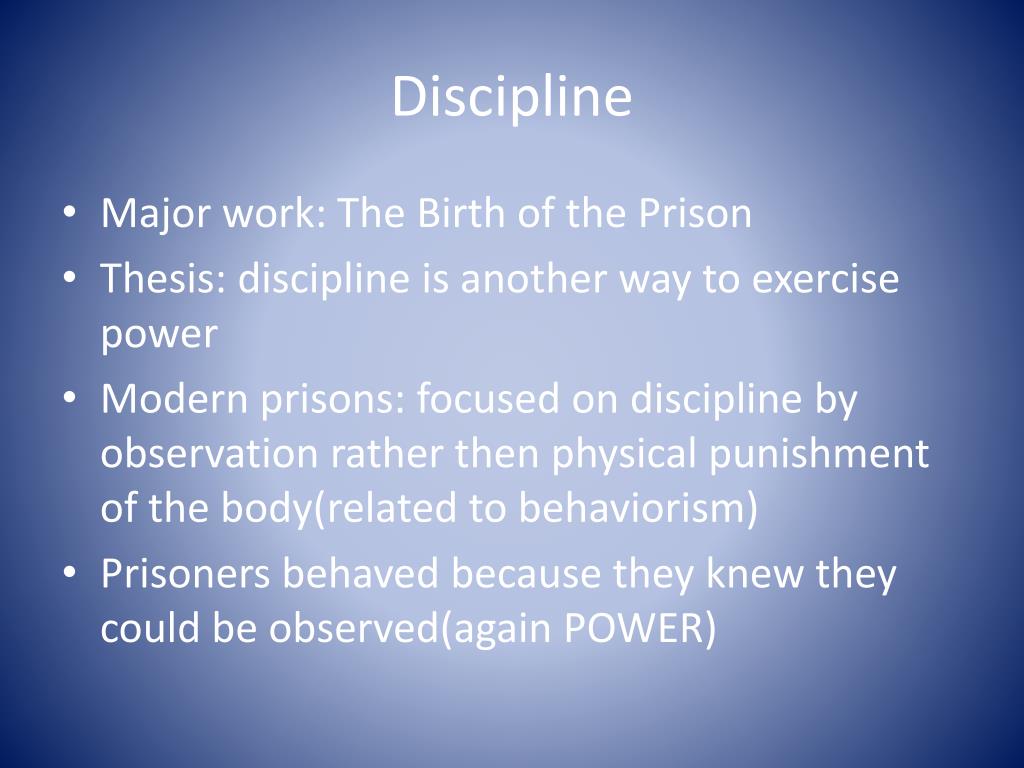
Instead, a new approach to punishment became the norm. By the turn of the eighteenth century in Europe, punishment as a public spectacle was no longer in vogue. But when the arms and legs refused to detach from Damiens’ torso, the executioner drew out his knife and sheared through the tendons and tissue before the horses completed the dismemberment.īut the execution was the last of its kind. Robert-François Damiens, a domestic servant, was publicly executed before a baying mob for his attempt to assassinate the French king, Louis XV.ĭamiens was to be quartered: his limbs were pulled by four horses driven in opposing directions. On 2 March 1757, the streets of Paris witnessed a ghastly spectacle. why exams really are just punishment by another name.the strange connection between an outbreak of plague and the ordering of industrial societies.In this summary of Discipline & Punish by Michel Foucault, you’ll learn If we understand how prisons function we can begin to understand the very foundations of society today. We shouldn’t pat ourselves on the back just because punishment got more “humane.” No, the change of tack represented a deeper sense of imprisonment that was taking place as society became chained to the industrial machine. This book summary trace the emergence of the prison and depict the changing industrial age, influenced by Enlightenment ideas as societal needs and values underwent a radical transformation.īut this is Foucault. Suspects were routinely tortured during investigative processes, and convicted felons were cruelly and inhumanely executed in public as examples to the people and as a demonstration of a sovereign’s will.


As Michel Foucault argues, only a few hundred years ago, the picture was different.

They just seem so unremarkable.īut of course, that is not the case. After all, they are an integral and accepted part of our legal system. It might not seem obvious at first glance why prisons are so important.


 0 kommentar(er)
0 kommentar(er)
